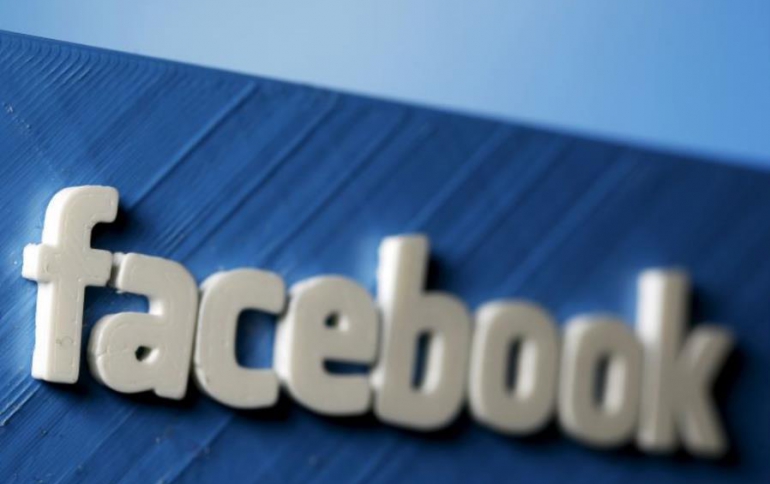
Facebook to Show More Friend Comments Than News in Updated Feed
Facebook on Thursday began to change the way it filters posts and videos on its News Feed, by prioritizing what friends and family share, while reducing the amount of non-advertising content from publishers.
Facebook has for years prioritized material that its computer algorithms think people will engage with through comments, "likes" or other ways of showing interest.
Chief Executive Mark Zuckerberg Zuckerberg, the company's 33-year-old co-founder, said that would no longer be the goal.
"I'm changing the goal I give our product teams from focusing on helping you find relevant content to helping you have more meaningful social interactions," Zuckerberg said.
With this update, Facebook's algorithms will "prioritize posts that spark conversations and meaningful interactions between people." To do this, the algorithm will predict which posts you might want to interact with your friends about, and show these posts higher in feed.
The company will also prioritize posts from friends and family over public content.
The shift was likely to mean that the time people spend on Facebook and some measures of engagement would go down in the short term, he wrote, but he added it would be better for users and for the business over the long term.
Advertising on the social network would be unaffected by the changes, said John Hegeman, a Facebook vice president.
Similar changes will be made to other products in the coming months, according to Facebook said.
Zuckerberg has been doing a bit of soul-searching about the negative effects his company may be having on society and its users' psyches. He's come a long way since November 2016, when he dismissed the notion that fake news on Facebook could have influenced the U.S. presidential election as a "pretty crazy idea ."
Now it's his personal goal for 2018 to fix the site and weed out hate, abuse, meddling by malicious nation states, while also making it more "meaningful" and less depressing for users.
The company also faces pressure from regulators in the U.S. and abroad, and a growing backlash from academics, lawmakers and even early executives and investors about the ways in which social media may be leaving us depressed, isolated, bombarded by online trolls and addicted to our phones.
With more than 2 billion monthly users, Facebook is the world's largest social media network. It is also among the world's largest corporations, reporting $36 billion in revenue, mostly from advertising, during the 12 months that ended on Sept. 30.
Facebook's decision to shift people's news feeds back toward posts from friends and family and away from businesses and media outlets will likely mean users spend less time on the site. Less time, of course, means fewer advertising eyeballs at any given time.
This is a huge shift for Facebook, which until recently has been laser-focused on keeping users glued to the service by offering a bevy of notifications and "engaging" but low-value material.
While the changes could hurt Facebook's business in the short term, advertising revenue may continue to grow as quality over quantity wins out in the long term.
>But the shift away from non-ad content produced by businesses is a potentially severe blow to news organizations, many of which use Facebook to drive readership.





















